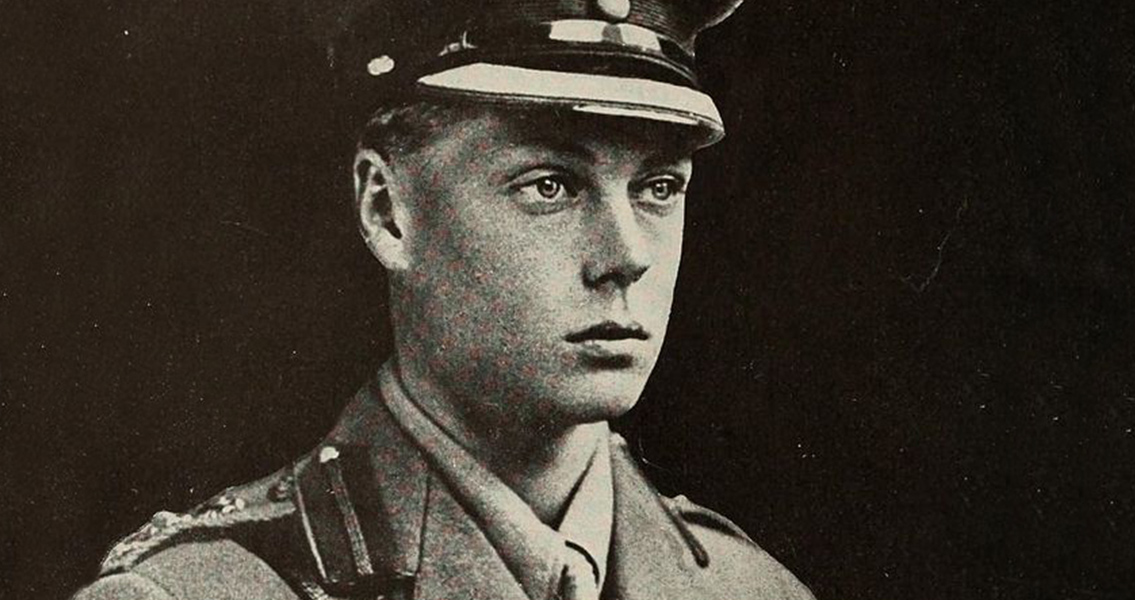<![CDATA[On the 11th December 1936 King Edward VIII took part in a live radio interview to explain his abdication of the throne. The previous day he had become the first British monarch to renounce his position voluntarily. The abdication, and the events surrounding it, stands as one of the most scandalous moments in the recent history of the British Royal Family. Edward was the first son of King George V, and the successor to the throne his father inherited in 1910. As the Prince of Wales, Edward proved a reasonably popular member of the Royal Family. He carried out regional visits to some of the poorest areas of the country during the economic depression of the early 1930s, and built a reputation for taking a real interest in the social and economic problems that blighted parts of Great Britain. His popularity was further boosted by a strong record of military service. At the outbreak of the First World War he had argued with Lord Kitchener for a position on the frontlines. Although this request was denied, for fear that he could be captured by the enemy, he served on the staff of the head of the British Expeditionary Force, Sir John French. Even though he never saw active combat, his position exposed him to some of the horrors of war. His willingness to fight, although never tested, earnt him the respect of ordinary soldiers in the British Armed Forces. As the future king approached his fortieth birthday, he remained unmarried, but a regular presence in England's fashionable high society. Generally regarded as handsome, the blonde haired, blue eyed prince also regularly demonstrated an inclination to women inappropriate for his role as the future King of England. In 1918 he met Mrs Winifred Dudley Ward, a woman who was around the same age as Edward, but had been married for five years. She became Edward's long term mistress. By 1934, Edward had fallen deeply in love with Wallis Warfield Simpson, an American socialite who had already been divorced once, and was married to an American business man living in London. Edward's new mistress was unpopular with the royal family, but by the time of his father's death in January 1936, Edward was intent on marrying her. Edward's brief reign as king was neither particularly popular or unpopular. The positive reputation he had won as Prince of Wales was carried over, but he also courted controversy with his attempts to modernise the monarchy. The most crucial detail of his early reign however, was that his affair with Simpson had started to be reported in European and American newspapers. In October 1936 Simpson won a 'preliminary decree of divorce', which seemed a precursor to her marrying the new king. The scandal quickly escalated, as both the Church of England and British politicians united in their disapproval of the impending marriage. On December 3rd the story finally broke in the British press. Overnight the scandal went from clandestine to being openly discussed in Parliament. The hostility Edward faced reveals a great deal about the conservative values that continued to dominate British society, particularly in regards to the monarchy. By December 10th it had become clear that no compromise was possible - Edward could not marry Simpson and remain king. After a reign of only 325 days he renounced the throne, an act that was ratified by Parliament on December 11th. The following day, his younger brother Albert was crowned King George VI (George was his last name). Edward was given the title Duke of Windsor, but he and Simpson would never return to the UK, instead moving to France. Their story is a fascinating one. For some it is a scandal that exposed the immorality of the Royal Family or the old fashioned values of the British establishment. For others it is a moving love story - a king willing to give up everything to marry the woman he loved. Which ever way one chooses to interpret the abdication of Edward VIII, it is a fascinating moment in the history of the British monarchy, and the country as a whole.]]>
The Abdication of Edward VIII
